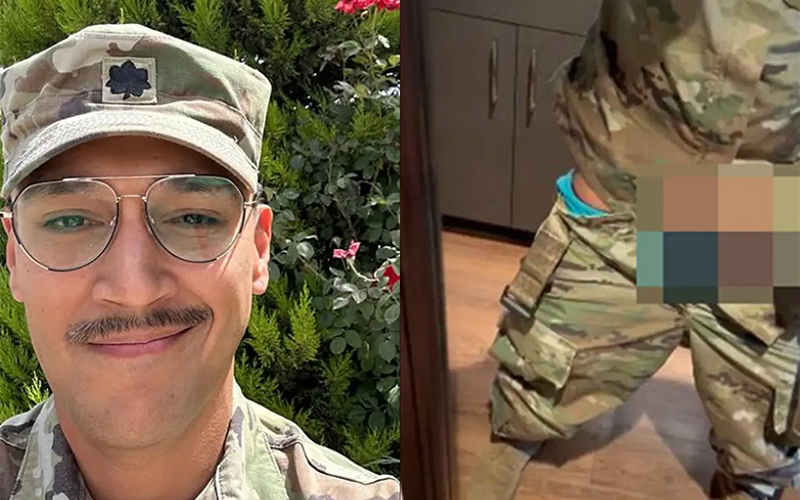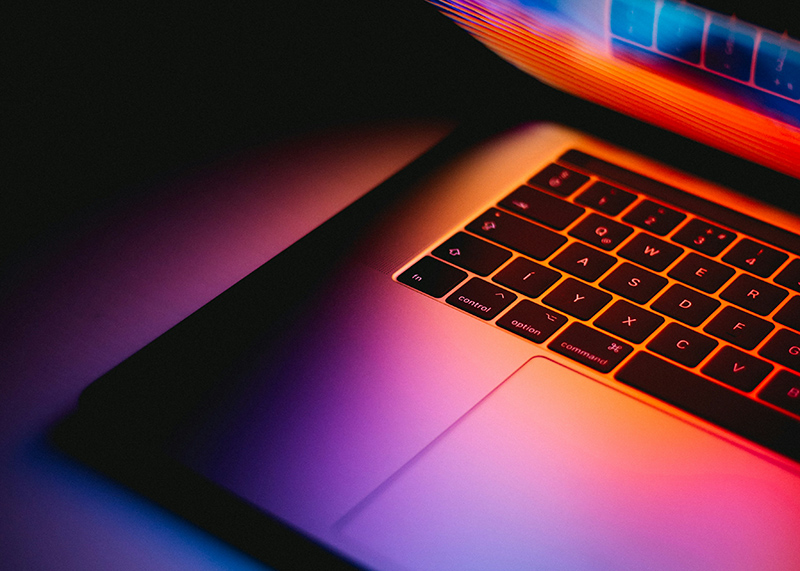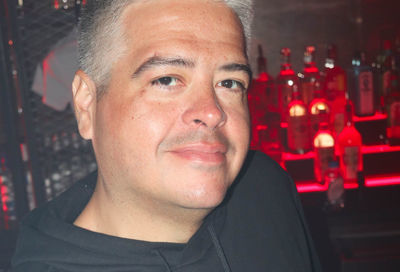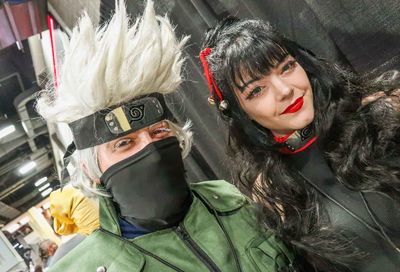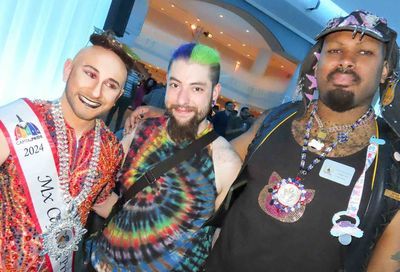Daniel's Choice
Faced with a decision between living with integrity or living a lie, this West Point grad chose honesty
Lt. Daniel Choi — West Point grad, Arabic linguist, platoon leader, Iraq War veteran — isn’t the first soldier to be targeted by the military’s ”Don’t Ask, Don’t Tell” policy. When Choi came out as gay in the aftermath of California’s Proposition 8, which repealed marriage equality in his home state, he became the latest in a long line of soldiers who have been told they cannot serve their country because they chose to tell the truth.
But while he may be one of thousands, Choi has quickly become a central media figure in the battle over DADT, a battle that’s grown more intense as President Barack Obama continues to pledge to end the policy while the LGBT community chafes at awaiting a sign that an actual repeal of the policy is more than just a promise.

Daniel Choi
(Photo by Todd Franson)
It’s an important question for Choi, and for his fellow servicemembers, both active duty and veteran. His public coming out early this year, including appearances on the Rachel Maddow Show and CNN, as well as a prominent role in the newly formed Knights Out organization for LGBT West Point alumni, has placed his continued service in the National Guard in jeopardy as the bureaucracy of DADT has turned its attention to him.
”He will be the first person to tell you he’s not a hero, that’s it’s not about him,” says Sue Fulton, communications director for Knights Out. ”He’s following the values he was taught by his family and West Point.”
Fulton knows those values, as well as the challenges of being on the front lines of change — in 1976, she was among the first women to enter West Point as cadets. One lesson from the past that has hopeful implications for the future: Of the cadet companies at West Point in 1976, those that included women had much more positive attitudes toward women and their abilities as soldiers than did those cadets in companies without women.
”Once you get to know them and start to treat them as human beings,” she says, ”that builds unit cohesion.”
That’s the challenge undertaken by Choi, who just two weeks ago arrived in D.C. for the National Equality March, a massive activist movement for which he served as a national co-chair and the lead on DADT repeal issues. His forceful advocacy for those servicemembers still forced to serve in silence has become a focal point for those who believe the time for change is now.
Daniel Choi — son of immigrants, devout Christian, talented singer, loving partner — isn’t the first soldier to be targeted by ”Don’t Ask, Don’t Tell.”
But he certainly intends to be one of the last.
METRO WEEKLY: You were very involved with the National Equality March, both in the planning for it and in a number of events during that weekend. How did that come about?
DANIEL CHOI: I met with Robin McGehee and other people from the Courage Campaign, back in California on the day of the court decision [that left standing] Proposition 8, and that’s when I really got involved. I think especially after the defeat in California, people realized that this has to be a federal fight. Of course, that did pit us against a lot of the people that said you need to use your quote-unquote ”finite resources” fighting in certain states — in essence, they were prioritizing certain states, and that didn’t speak to me very well. Particularly after the Prop 8 battle in California, we realized that this has to be taken at the real battleground.
They asked me to just be on the steering committee. I did not expect to be a national co-chair or a speaker or essentially taking on the burden of representing ”Don’t Ask, Don’t Tell” in our movement. I felt very inadequate to do that because I have been thrown into this — I never expected to be an activist. I think it was a little bit scary to see that as the title below my name on the TV screen. I don’t know why, because it’s not a bad thing to be an activist, it’s an important thing to be an activist, but the word for me has different connotations, clearly because of being in the military. I’m reluctant to take it on, but now I suppose that is my new title.
MW: Have you gotten any shit from friends in the Army or anyone else about being known as an ”activist”?
CHOI: Yeah. [Laughs.] Actually, I’ve gotten it from other activists. I know a lot about initiations and traditions that people have to sort of pay your dues — in the military, there are procedures and protocols. You gain rank. Here, you don’t have that as much, but there are different traditional ways, that we have paid dues within the community, at least from what I’m understanding, and so a lot of people have pointed out that. I wouldn’t go to the point of saying that I don’t deserve to be in this role, but they say, ”You sort of came out of nowhere.”
And, of course, my dad had an issue with it in the beginning for altogether different reasons. But he had said, ”You can talk to this Rachel Maddow lady all you want, and you can talk to the gay blogs, I don’t care, but stop talking to the Korean Christian conservative radio stations and newspapers. You know what this makes me look like.” He’s a Southern Baptist minister. My mom’s like, ”You’ve just gone crazy.” She says it all in Korean; it sounds a lot more violent in Korean. [Laughs.]
There was a soldier in my unit who came up to me and said, ”Sir, you’ve been talking about gay shit on TV?” And I was like, yeah, that’s what I was talking about — I was really wondering what he was going to say or what kind of commentary he was going to provide me as one of my soldiers. And he was like, ”That’s awesome shit. You need to get glamour shots and make-up and maybe you should get a cosmetologist….” I was like, you just stop right there because I have no idea what you’re talking about. That’s way too gay, how do you know all this stuff? [Laughs.]
MW: What do you think will grow out of the National Equality March?
CHOI: I think the greatest thing that you see coming out of this march is the young people who have never, ever marched before. I would like to consider myself one of them, but there are people far younger than me who were coming out here. And this was the message that we gave to them: That they have to get involved. We sent a clear message that you have to fight for anything worth attaining. We also sent a message to those people generations from now who are looking at what we did when it was our turn, when there was DOMA and ”Don’t Ask, Don’t Tell,” and no ENDA and no hate crimes bill. What did we do? Did we stay at home and allow our lobbyists to be alone here in Washington, or did we come here to support them? Because we were not just marching for ourselves, but also for all those people who either couldn’t muster the courage or weren’t out of the closet enough. There are millions of people that we represented here. It was so heartening to know within our community that we did get the hundreds and thousands that were here, especially the tens of thousands of young people who were here.
MW: When did you know you were gay?
CHOI: It was like fourth grade or so. Of course, growing up in a Southern Baptist home we were always taught no sex before marriage, don’t make a girl pregnant — and I was like, well, that’s going to be easy for me. But my upbringing made it very difficult to come to terms with it. I would pray about it at these revival services. I would just be crying and praying, ”Jesus, just make me sexually attracted to Lucy Liu, make me pop a boner for Michelle Pfeiffer, in Jesus’ name, amen!” That’s how ridiculous it was, that those were the things I was praying about. But that’s how fervently I believed that it was changeable.
I came to terms with it a little bit while I was at West Point, although after I graduated I still had never had a boyfriend or a girlfriend. For 10 years while I was in the military, when my sexual orientation was just sexual, I was like, ”Why should I come out of the closet?” Then, after coming back from Iraq I realized at my brother’s wedding, ”When am I going to get on with my life? When am I going to start to enjoy love and these things that they always talk about?”
And when I did, I was like, ”Wow, this is why people come out of the closet!” I started a relationship [with my partner, Matthew Kinsey,] and I understood what everybody was talking about all the time. I realized it’s such a force multiplier to have somebody that you love and that you’re committed to and that you can mature with and sacrifice for and will love you regardless what happens in the workday. That made me a better person. It made me a better leader, because I could understand people. It made me a better Christian, because I could go to church and be honest and understand things in a more full context. And it made me a better soldier.
MW: Your parents emigrated from Korea to the United States. What story does your family tell about how they came to be here?
CHOI: My dad grew up during the Korean War. He was about 5 years old and he was strapped onto the top of a train going down to Pusan when the North Koreans and Chinese were coming down. My mom was an orphan from the war. She hates war and she had a heart attack when I told her that I was going to go to West Point.
My mom, she was a missionary in Germany before she came to America. My dad became a minister. They met in L.A. and got married — that was in the ’70s. My older brother grew up learning Korean only, and it gave him a real difficult time when he was in kindergarten, so they made sure that I learned English and I taught my younger sister how to read English, because I was three years older than her and I wanted to set her up for success. There were a lot of difficulties learning how to be fully American but also fully Korean at the same time.
My parents always brag about me in church, and it was difficult when I came out of the closet to them because my mom just didn’t know how to reconcile this issue. She would talk about me graduating from West Point and being a Harvard student and going to Iraq and coming back, being very involved in church, and bragging about all this stuff. They even got to the point where it was like, ”And he’s a tall Korean, too!” [Laughs.] Their validation of their existence is through living vicariously and bragging about all these things that I’ve accomplished and done. I realized that’s so important to them, but now they’re going to have to deal with, ”Okay, he’s gay and he has a great boyfriend that supports him.” And are they ever going to be able to understand that?
My mom, when I told her, was like, ”Gay doesn’t exist. I love you but gay doesn’t exist, it’s not true.” She was in such denial. My dad was very irrational at times. I lived with them for six months [after coming out to them], because I knew it was going to be difficult and I didn’t want them to think that I’m psychologically deranged or something. I went to church with them during this time. My mom wanted me to go to demonic exorcisms, and she said we all have to have a group prayer for you. I was like, well, let’s go pray in the church then. And she was like, ”No, no, no, no, you can’t tell anybody in the church.” She was trying to apply what she knew were the traditional ways of dealing with whatever she thought was a sin or a weakness or an illness or a disease.
MW: I was curious looking at your biography, is there a long history of Christianity in your family?
CHOI: My dad was actually one of the first. He helped to convert my grandparents. I guess in a lot of ways he’s an activist.
MW: He’s very persuasive.
CHOI: Many people have commented to me that he’s not afraid in his sermons to let people know what they need to know and hear the message they need to hear. Although he was very irrational about [my coming out], four days ago we talked and he said, ”I love you, and I accept you as my gay son.” With all of what’s been going on in the past nine months, I never would have expected that in nine years — maybe even a couple decades. It was so amazing on the eve of this whole D.C. thing, that gave me so much comfort and healing. I almost didn’t know how to deal with it emotionally.
MW: How has your reception as a gay, born-again Christian been within the LGBT community?
CHOI: There have been a lot of people were a little bit taken aback; not only, ”How is this possible?” but almost like, ”How dare you?” A lot of people are so injured, so hurt by the religious establishment that they just go to atheism. They find their ethics and their values in different ways, because they see the damage that some people cause [using religion] as a weapon to strip away the rights of those people. Forgive me if I use it in a military context, but just because the weapon is used against you doesn’t mean the weapon is not viable for you to use — it’s something that’s important, it’s something that we can be empowered by.
When you look at some of the things that have been used against us, it doesn’t diminish the fact that we are a very spiritual people. I think the gay and lesbian community is deeply spiritual. It has a lot to do with us being oppressed, being different, and also having this innate ability, I think, to understand other people a little bit more. It’s really damaging, then, that people are essentially robbed of not just spirituality but religion. For some people that title in itself is very spiritually healing and uplifting — it is a part of the religious tradition to say you’re a born-again Christian. I don’t think we should be denied that, and I don’t think we should deny ourselves that.
MW: Do people tend to look at the Asian community as one monolithic culture when there are different aspects to it? You’ve talked about specific experiences in being Korean — is it different depending on which Asian community you’re talking about?
CHOI: It certainly is. When you look at Prop 8, a lot of people will say, ”At least the Asian community voted 51 percent no on Prop 8.” And we’re just like, wow, that’s wonderful, that’s so hopeful for tolerance and these things. But when you look at the Korean population within those numbers, you see something like 70 percent voted yes on Prop 8. It was certainly a big difference — you [have to] take into consideration the extreme conservative nature of the Korean community.
When I talked to the Korean-American Coalition in L.A. this past month, it was the first time they ever had an LGBT panel of any sort. When I talked to one of the top Korean radio broadcasts, at the end of the interview they said it was the first time they ever had gay people in their studio. And I said, ”That you know of.” [Laughs.] But there’s a lot of work to be done within the Korean community, and it’s so difficult because it really hurts the Korean family when somebody is rejected within their family. They deal with so much.
I think that people use that as a defense mechanism, they say, ”Oh, we never talk about relationships or emotions anyway, so I’m just not going to tell them that I’m gay.” One thing that I found out when I told my dad, we were finally talking about relationships and about these emotions. I was able to share these things with him. But even though he said, ”I accept you as my gay son,” we still have a long way to go before he starts a Korean-American PFLAG or anything. [Laughs.]
MW: How hard is it to have a relationship when you’re suddenly all over the place and in public?
CHOI: I’m constantly coming to terms with it. I felt like I was dragging him into [all this] and I knew that was not the reason why we started our relationship. But he’s an important part of my story, because obviously I wouldn’t have come out to my friends or my parents or the Army or any of these people if it wasn’t for him. He’s been so supportive of me and I realize, though, that he can’t come to everything.
He has worried about me, because I had gone through a lot. I’d just returned from Iraq, I was still dealing with a lot of these issues of having seen a lot of my friends die and not come back. When I ended my active duty about a year and a half ago and transitioned into the National Guard, I was like, ”What just happened in my life?” Since I was 18 years old I had been marching in formation every day, and now all of a sudden I’m only doing it once a month. And coming out to my parents, and then being on TV, going back into religion — how do I reconcile all of these things?
And he’s been there with me throughout it all. Having that relationship makes this all so much easier to deal with. It’s so important to have that solid base. He’s never been an activist, that’s not what he signed up for, so I respect that. But he’s been great, because it gets draining. It is not easy.
MW: What do you see yourself doing in 10 years?
CHOI: I want to be an infantry officer. As far as the National Guard is concerned, I told my commander I don’t ever want to be promoted, my entire life. Let me be the 60-year-old guy who’s yelling at all the whippersnappers about, ”Back in the day when we only had Humvees with one tracker computer and now you’ve got all this.” As long as I can be that guy, that’s my dream. I would love to do that.
MW: Is there anything that’s happened in the past few months that’s made you think that you may want to do something different, to change what your future path might be?
CHOI: That’s a very mean question. Why are you forcing me to think of that? [Laughs.] A lot of people have told me that I should consider running for office, but honestly, I don’t know enough. I will always admit what I don’t know, and at this point I know absolutely nothing about what it means to hold elected office. I would so screw up the stimulus or health care.
But I’m a little bit busy right now dealing with basic inequality in our government and in our society, so I think for right now, at least, I have my hands full.
MW: If you were to run, which party would you run with?
CHOI: I’m not interested in any of the parties. I’m actually very disappointed in both of the parties. At least during my entire time in the military, none of the parties have made any real concrete efforts to erase discrimination. I know that members of Congress, it is their duty to represent and to look after the people, so I will speak to that. I would say that any of the people that have not co-sponsored the [DADT repeal] bill, they’re the ones that are firing me. I think that is absolute dereliction of their duty. I think they’re the ones who are responsible for this, and they will be held accountable. I might not vote in their districts but history will judge them. And I might just be losing my job, but they are losing the moral high ground.
MW: What’s the one question you really expected me to ask that I haven’t asked you yet?
CHOI: Gosh, I don’t expect any questions anymore. I guess that one was the one that I wasn’t expecting for you to ask.
MW: I want to make sure that if there’s something we haven’t talked about that you get a chance to do that.
CHOI: I’ve talked about values and made that my foundation, and if it wasn’t for those values I don’t think I would have had as much energy to do all these things. But when I talk about integrity or refusing to hide or refusing to lie, they’re obviously meant as a simple message to all these people, that this is what we stand for. I didn’t realize that some people would take offense to that because for those who are not ready to come out, they feel that I’m calling them a liar or somebody that doesn’t have courage. And although I’ve never done that, I realized that this is true of any community — they look at those who are willing to push out of the closet or push harder and maybe faster and stronger than they would be willing to. They look at that and there’s this threat that they feel.
And I just want to let them know that I am compassionate about their situation, and I’m not in the business of outing anybody. I’m not in the business of saying that they’re lesser people because of that. But when they realize that being truthful and risking all of these things is more important than rank and pension and benefits, they can join also. I’m speaking for them, because we all believe those things.
I think the most disgusting thing about our movement is that at one point it was called the gay liberation movement. Of course, it was important at that time because that was really what was needed — pointing out that there was oppression and liberation. But it’s disgusting to me now because if all we are about is liberating ourselves or our own freedoms or our own rights, I have a hard time relating with that. I know people are going to disagree with me when I say that I don’t think of it in terms of a rights movement, I think of it in terms of a responsibility movement.
When you talk about coming out, how dare you think that you come out just for yourself? You come out because there’s somebody else who needs you to come out, and it’s your responsibility to do that. Because there’s some kid who may be told by someone you know, ”Don’t worry, I have a gay friend.” You could be saving somebody’s life, right there in your own home, in your own community, in your own backyard. That’s why it’s important, not for our own individual rights or for our taxpayer equity or our return on investment or our victimhood. Those are all important, but the most important thing has to be that we have a responsibility for all those other people. And we can’t be afraid, we can’t shy away from making that our message.
Support Metro Weekly’s Journalism
These are challenging times for news organizations. And yet it’s crucial we stay active and provide vital resources and information to both our local readers and the world. So won’t you please take a moment and consider supporting Metro Weekly with a membership? For as little as $5 a month, you can help ensure Metro Weekly magazine and MetroWeekly.com remain free, viable resources as we provide the best, most diverse, culturally-resonant LGBTQ coverage in both the D.C. region and around the world. Memberships come with exclusive perks and discounts, your own personal digital delivery of each week’s magazine (and an archive), access to our Member's Lounge when it launches this fall, and exclusive members-only items like Metro Weekly Membership Mugs and Tote Bags! Check out all our membership levels here and please join us today!




